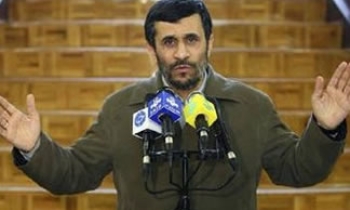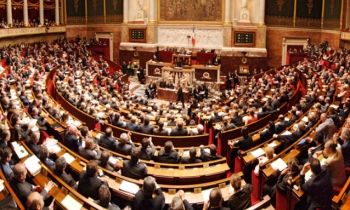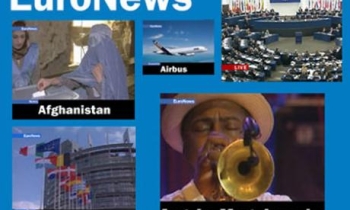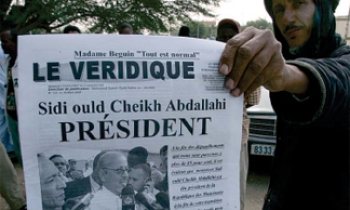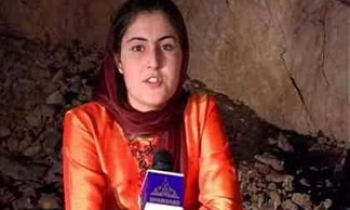China is the worst violator of Internet freedom, says a report by Reporters Sans Frontieres, which also finds that Internet journalists in South Asia are vulnerable to frequent attacks because they lack the legal protection traditional media enjoys.
The report, "Internet Under Surveillance 2004," examines the situation in 60 countries and zeroes in on China as the worst violator of online freedom. It says four countries throw people in jail for posting "subversive" topics online - China (with a whopping 63 cyber-dissidents in prison), Vietnam (7), the Maldives (3) and Syria (2).
"Censorship of online publications is steadily increasing and dictatorships are developing more and more sophisticated ways of filtering the Internet," cautions the RSF report released this week.
The report accuses democratic countries of steadily chipping away at the freedom of Internet users. As a result, Internet freedom is now much less legally protected than that of the traditional media in these countries.
In South Asia, Bangladesh and Pakistan are two countries where the situation is difficult for Internet users, RSF holds. It points out that in Bangladesh, journalists are already under attack.
"More journalists were physically attacked or threatened with death in Bangladesh than in any other country in 2003 and this and new tension in relations with neighboring India have made freedom of expression even more fragile." The Internet, it says, has "suffered the same fate" as the other media.
A new law is on the anvil that seeks to legalize e-mail surveillance. The Bangladesh government claims changes in the law have been drafted to strengthen national security and the war against terrorism.
The amendments would enable authorities to access personal customer data held by Internet Site Providers and allow data, till now accessed illegally through e-mail interception, to be used as court evidence.
"Freedom of expression campaigners fear the intelligence agencies will turn the country into a police state through the amendments," says RSF.
The report stresses that Internet freedom is a "major concern" for Pakistan as well. Internet use is under close scrutiny in the country, which, RSF says, is "a center of the fight against Al Qaeda, which uses the Internet very effectively."
The United States has given technological help to Pakistan to monitor online traffic, it discloses. E-mail surveillance reportedly led to the arrests of two Al Qaeda suspects in Peshawar in September 2003.
In India -- where the situation was described as "middling" -- Internet users "fiercely resist" government attempts to regulate online activity. The Indian government recently blocked a Yahoo group, accusing it of being used by a separatist group in the northeastern part of the country. It also blocked a Hindu website charged with spreading religious fundamentalism.
A major problem with Internet surveillance in India is the fact that a government-instituted committee - the Computer Emergency Response Team - has been given the authority to censor Internet content, says Rishi Chawla, country representative of the Global Internet Policy Initiative, a body advocating a free media.
The committee, which consists only of scientists, is dealing both with technological issues and content. Chawla argues that, "If there are people from all walks of life, we will know what is good for society and what is not."
He stresses that people whose websites have been blocked have no provision for an appeal. "If the government blocks my website because it thinks it is anti-national, I have no platform to state my case. I must have my right to be heard."
New Delhi based Information Technology consultant Raj Mathur believes that the CERT in India should be like its counterparts in the rest of the world, a regulatory body. "This is a body that takes care of major problems such as a virus or worms," says Mathur. "But in India, the CERT is a body that seeks to prevent people from freely using the Internet."
Mathur stresses that one of the major problems in India is the continuing lack of policy on issues relating to the Internet. "On the basis of an obscure order issued from an obscure corner of the government, a website is banned," he says. "And you are not told that there is a ban, or why a website has been banned. And since you don't know who has issued the ban, there is no way of taking it up with the government either."
Experts such as Mathur believe that governments should stop acting as moral-police. "We don't need the government to mollycoddle us, to tell us what we should see and what we shouldn't."
The RSF also found that India -- which has more media outlets than any other country -- is waging an "intense cyber-war" against its neighbor, Pakistan.
"The two countries have reproduced their terrestrial rivalry on the Internet," it says, adding that websites are being routinely hacked, blocking access to hundreds of them and destroying thousands of Pakistani and Indian computers.
In Sri Lanka, the report states that the Internet is "fairly free," especially since armed rebels, the Liberation Tigers of Tamil Eelam (LTTE), and the government went in for a ceasefire in 2002.
A Sri Lankan political news site www.tamilnet.com, however, is under constant threat from both the government and the rebels, it says, pointing out that its editor, Dharmaratnam Sivaram, was attacked in his office in December, 2001. Before elections held in April 2004, Tamil rebels summoned and interrogated him several times.
In Nepal, where more journalists were arrested in 2003 than in any other country as a fall-out of a violent battle between government troops and armed rebels, websites of public organizations are often hacked.
The RSF states that its report is not a ranking of regimes by their "repression" of the Internet. "(It is) more as an appeal for vigilance in countries where, as in democracies, it's still possible to exposes abuses and flaws," says RSF secretary general Robert Mnard.

